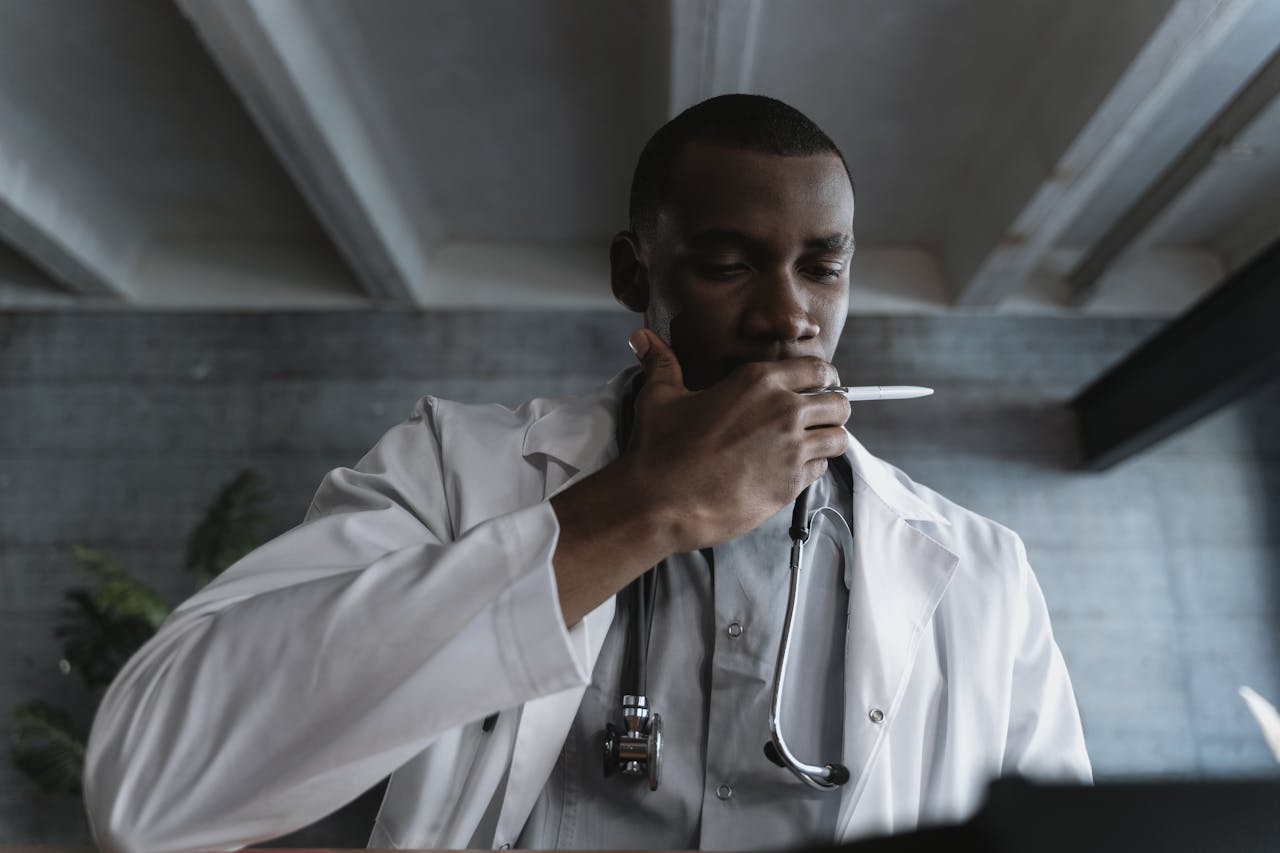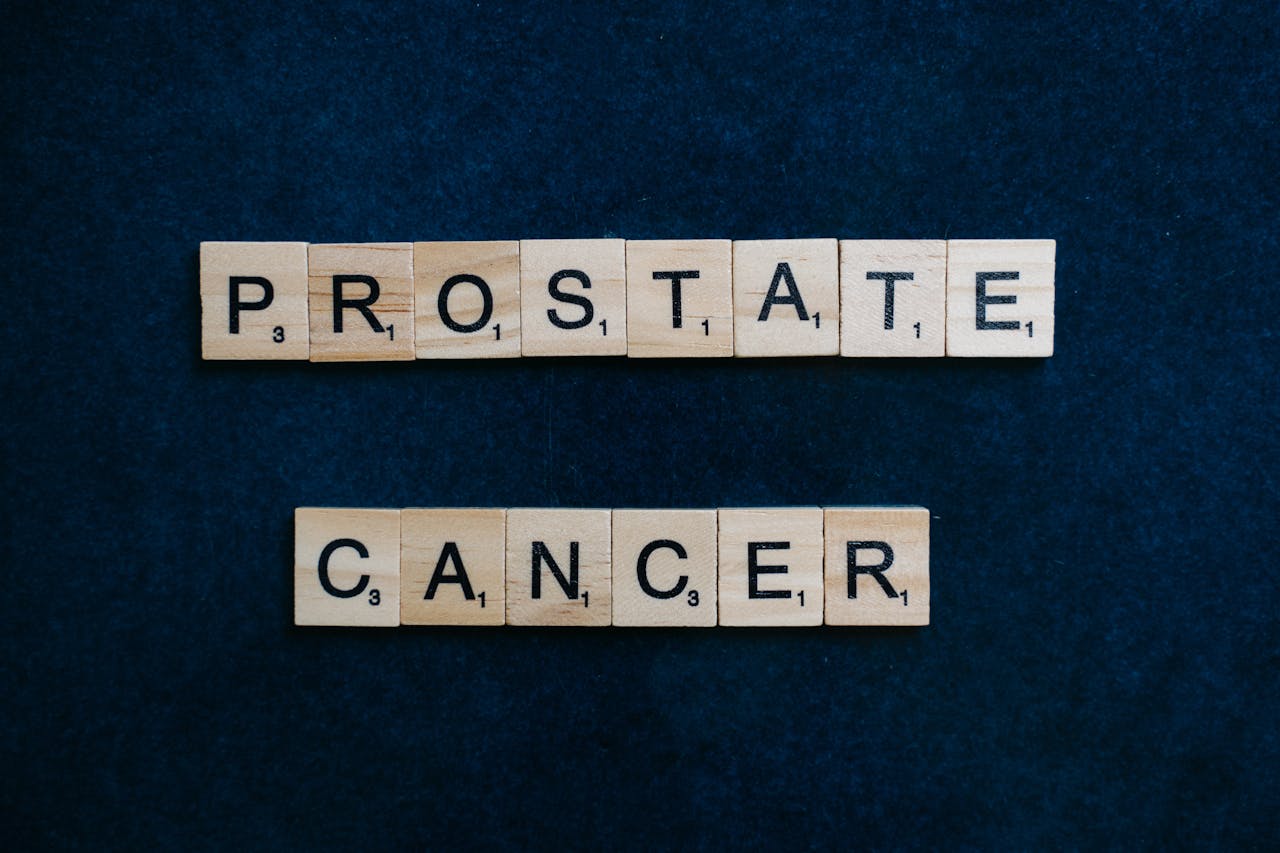Health & Wellness
Therapy session with rapper Prodigy highlights living with a chronic illness
Before his untimely death, Rapper Prodigy sat with therapist to discuss life and his challenges. Prodigy had sickle cell anemia and passed at the age of 42.
Before his untimely death, rapper Prodigy sat with a therapist on Viceland to discuss life and his challenges.
Prodigy on Viceland
Prodigy had sickle cell anemia and passed away two weeks ago at the age of 42. Though details of his official cause of death remain unknown, Prodigy has always been upfront with his battles with sickle cell anemia.
Dealing with pain
I found these videos interesting because Prodigy talks about the pain he endured as a person with a chronic illness. When I heard him talk, it reminded me of my down days dealing with connective tissue disease. One day you can be feeling fine, the next day you can be in so much pain, you cannot move.
Depression
What also struck me in this interview was when Prodigy began talking about how his illness might have made him develop depression. This is deep because as many people with chronic illnesses will tell you, the day to day struggles of dealing with your disease can break you down mentally. I know those days all too well.
Maintaining healthy lifestyle
Prodigy also talked about eating right and how he maintained a healthy lifestyle. It’s unfortunate that Prodigy left this earth too soon, but it seemed Prodigy was very much at peace with who he was.
The full episode aired yesterday on Viceland, but check out these chilling clips below.
RIP Prodigy.
Interview
----------------------------------------------------------
Connect with Unheard Voices on Twitter, Facebook, TikTok, Instagram, YouTube
Download the app on Google Play or ITunes.
----------------------------------------------------------
Unheard Voices Magazine is a news reporting platform covered under Copyright Disclaimer Under Section 107 of the Copyright Act 1976, allowance is made for "fair use" for purposes such as criticism, comment, news reporting, teaching, scholarship, and research.
Health & Wellness
7 myths about Prostate Cancer debunked by #BlackProstateCheckChallenge
In honor of Prostate Awareness Month, the #BlackProstateCheckChallenge initiative has created 7 myths about the afflicting disease.

September is Prostate Cancer Awareness Month and just like any other diseases, there are myths about this one.
Stats
According to Zero Prostate, Black and African American men are much more likely to develop prostate cancer. One in six Black men will develop prostate cancer in his lifetime—compared to one in eight men overall. Black men are 1.7 times more likely to be diagnosed with—and 2.1 times more likely to die from—prostate cancer than white men.
Prostate Cancer awareness challenge
Civil Rights icon Charles D. Neblett, PhD.’s family nonprofit organization Community Projects, Inc. has created a new initiative, the #BlackProstateCheckChallenge, asking Black prostate cancer survivors and patients to post their journeys using the hashtag simply.
The purpose of the initiative is to open dialogue, overcome stigmas and fears, capture snapshots of experiences, and share information and resources to reveal the complex issues of health equity concerns among Black men.
In honor of Prostate Awareness Month, the #BlackProstateCheckChallenge initiative has created 7 myths about the afflicting disease.
Check out the 7 myths about prostate cancer debunked by #BlackProstateCheckChallenge
- Black men get prostate cancer just like every other race. No. According to the American Cancer Society, the prevalence of prostate cancer is greater in Black males, affecting one out of every six, compared to one out of every eight white men. In addition, black men experience a greater mortality rate from prostate cancer, which is twice as high as that of white men. White men have historically enjoyed the privilege of receiving cancer treatments, which accounts for the difference in mortality rates. A recent Keck School of Medicine of USC study found nine previously undiscovered genetic variants that increase the risk of prostate cancer in men of African ancestry, with seven of these variants being found mostly or exclusively in Black men.
- “I don’t have prostate cancer if I have no symptoms.” No. Black men are being diagnosed in later stages and with more specific aggressive prostate cancer. Sexual partners are key supporters to encourage men to notice symptoms like more frequent trips to restroom in middle of the night or a difference is sexual performance. By the time Black men notice symptoms, they could be in a later stage than white men. If a Black man has a grandfather or father who has prostate cancer, they should be getting a DRE exam by age 35-38 because they are now at risk.
- Every hospital lab has the same standard imaging equipment. No. You should ask what year your radiation machine was built. 30% of men getting radiated for prostate cancer are treated with older, lower energy machines. Patients should work with their doctor to stay on top of their imaging as well as their PSA test results.
- “There is one best way to treat prostate cancer.” No, a patient and a doctor should have “shared decision-making.” You should have an open, trusted relationship to decide the route that’s the best individualized for you based on your genetics, health history, age, stage, and lifestyle. Every prostate cancer patient should have access to a nutritionist.
- “Every male should get screening as soon as possible.” No. Black men have the highest false-positive results. There have not been enough Black men studied in clinical trials to support that early screening prevents prostate cancer.
- “Prayer and spirituality can’t help cancer.” Cancer can help patients to focus on what truly matters, and prompt us to live with a heightened consciousness of our ultimate priorities. The current data suggests that added stress or trauma can contribute to more aggressive cancer.
- “Cancer care is covered by Medicare.” No. The average cost of Stage 4 prostate cancer is more than $93,000 annually, according to the American Cancer Society. The Medicare for All Act was introduced in Senate (05/17/2023). It would establish a national health insurance program that is administered by the Department of Health and Human Services. It has not passed.
----------------------------------------------------------
Connect with Unheard Voices on Twitter, Facebook, TikTok, Instagram, YouTube
Download the app on Google Play or ITunes.
----------------------------------------------------------
Unheard Voices Magazine is a news reporting platform covered under Copyright Disclaimer Under Section 107 of the Copyright Act 1976, allowance is made for "fair use" for purposes such as criticism, comment, news reporting, teaching, scholarship, and research.
Health & Wellness
New survey reveals 43% of Black Gen Z singles are practicing celibacy
Celibacy Gains Momentum as Young Black Singles Seek Emotional Well-Being and Healthier Relationships Amidst Changing Dating Culture

A recent survey conducted by BLK, the leading dating app for Black singles, has uncovered a significant trend among Black Gen Z daters—43% are currently practicing celibacy.
Black Gen Z celibacy
Among Black Gen Z women, the number is even higher, with 64% embracing this lifestyle choice. Interestingly, most of these women are new to celibacy, with 63% having adopted it in the past six months.
This shift reflects a growing focus on personal development and mental well-being among young Black daters. The survey found that the top reasons for choosing celibacy include personal growth and self-discovery (61%), as well as frustration with toxic dating culture.
Key Survey Findings:
- 43% of Black Gen Z daters are practicing celibacy.
- 64% of Black Gen Z women are celibate, with 63% having been celibate for less than six months.
- 61% cited personal growth or self-discovery as their primary reason for celibacy.
- 66% reported improved mental and emotional well-being due to celibacy.
- 87% said celibacy has either positively impacted their dating life or made no difference.
- 1 in 3 Black Gen Z daters believe celibacy is becoming more accepted, though 43% still feel there’s a stigma within the Black community.
Celibacy and Mental Health: A Positive Impact
Celibacy isn’t just about abstaining from physical intimacy; it’s become a means of emotional and mental self-care for many Gen Z daters. The survey revealed that 66% of respondents reported significant improvements in their mental and emotional well-being since becoming celibate. By focusing on their inner growth and avoiding the stress of toxic dating environments, young Black singles are finding greater peace and clarity.
Contrary to concerns that celibacy might hinder dating success, 87% of those surveyed said it has either positively impacted their dating life or made no difference at all. In fact, many Black Gen Z daters prefer to discuss celibacy early in a relationship, creating transparency and fostering deeper connections.
Navigating Stigma: The Evolving Perception of Celibacy in the Black Community
While celibacy is becoming more accepted among Black Gen Z, with 1 in 3 feeling that it’s gaining acceptance, 43% believe that stigma or misunderstanding still exists within the broader Black community. These individuals are redefining what it means to date and thrive in relationships, challenging outdated societal norms in the process.
Jonathan Kirkland, Head of Brand and Marketing at BLK, highlights this cultural shift: “What we’re seeing with Black Gen Z singles is more than just a dating trend—it’s a movement towards personal empowerment and emotional well-being. This generation values authenticity and is reclaiming their narratives, prioritizing self-discovery over societal expectations. The rise in celibacy speaks to their desire for healthier relationships, both with themselves and others, and that’s a powerful statement.”
As more Black Gen Z daters follow this path, celibacy is emerging as a growing cultural trend, not just for dating but as a broader statement about self-worth, mental health, and emotional well-being.
----------------------------------------------------------
Connect with Unheard Voices on Twitter, Facebook, TikTok, Instagram, YouTube
Download the app on Google Play or ITunes.
----------------------------------------------------------
Unheard Voices Magazine is a news reporting platform covered under Copyright Disclaimer Under Section 107 of the Copyright Act 1976, allowance is made for "fair use" for purposes such as criticism, comment, news reporting, teaching, scholarship, and research.
Health & Wellness
Civil Rights icon launches the #BlackProstateCheckChallenge in honor of Prostate Cancer Awareness Month
The purpose of the initiative is to open dialogue, overcome stigmas and fears, capture snapshots of experiences, and share information and resources to reveal the complex issues of health equity concerns among Black men @BlackProstateCheckChallenge on Instagram, TikTok, LinkedIn, Threads, and Facebook pages.

For September Prostate Cancer Awareness Month, Civil Rights icon Charles D. Neblett, PhD.’s family nonprofit organization Community Projects, Inc. has created a new initiative, the #BlackProstateCheckChallenge, asking Black prostate cancer survivors and patients to post their journeys using the hashtag simply.
About the challenge
The purpose of the initiative is to open dialogue, overcome stigmas and fears, capture snapshots of experiences, and share information and resources to reveal the complex issues of health equity concerns among Black men @BlackProstateCheckChallenge on Instagram, TikTok, LinkedIn, Threads, and Facebook pages.
A platform to tell your story
Charles D. Neblett, PhD. was recently diagnosed with stage 4 metastatic prostate cancer and has passed the torch to carry on his civil rights legacy in the fight for equity.
“To give a platform to the often-ignored opinions of African American men, we launched this challenge to give them the space to be heard. Right now, we need to pay attention to what Black men as patients care about. We’ve asked doctors and policymakers to pay attention and listen to the relevant social media updates regarding urgent issues right now,” said son Kwesi Neblett, “Much effort has been put into screening, but not enough effort into Black men currently battling the disease right now. Too many Black men are passing away unnecessarily; thus, this is an urgent issue.”
His father, Charles, added, “We want to have a voice in determining the best course of action for ourselves as individuals being treated with equity and in our community by discussing the effects of therapies on our genetics.” Black men, who live in areas where health problems are most prevalent, are the intended targets of this diversity challenge.”
Kwesi, son and creator of the challenge, said, “We need a space to hear from Black men and families who battle the disease and the inequities. We want to challenge them to elevate their voices to make a difference, as they are the ones who can articulate the issues better. We should hear it from them directly and as authentically as possible.” Kwesi has also created a #BlackProstateCheckChallenge Panel of community leaders, policymakers, expert doctors, and holistic providers who are dedicated to guiding Black men through the process of prostate cancer treatment.
----------------------------------------------------------
Connect with Unheard Voices on Twitter, Facebook, TikTok, Instagram, YouTube
Download the app on Google Play or ITunes.
----------------------------------------------------------
Unheard Voices Magazine is a news reporting platform covered under Copyright Disclaimer Under Section 107 of the Copyright Act 1976, allowance is made for "fair use" for purposes such as criticism, comment, news reporting, teaching, scholarship, and research.
-

 Education1 week ago
Education1 week agoTexas educator blinded following student incident, GoFundMe started
-

 In Memoriam1 week ago
In Memoriam1 week agoIn Memoriam: James Earl Jones (1931 – 2024)
-

 In Memoriam3 weeks ago
In Memoriam3 weeks agoIn Memoriam : Issac “Fatman Scoop” Freeman III dies at 56
-

 Police3 weeks ago
Police3 weeks agoJudge rules Breonna Taylor’s boyfriend caused her death, dismisses major charges against former Louisville officers
-

 Culture4 weeks ago
Culture4 weeks agocouchdate, a hub for Black and brown creatives to enjoy events, needs your help
-

 Social Justice3 weeks ago
Social Justice3 weeks agoChicago woman aims to resurrect Englewood neighborhood
-

 Health & Wellness2 weeks ago
Health & Wellness2 weeks agoNew survey reveals 43% of Black Gen Z singles are practicing celibacy
-

 Culture2 weeks ago
Culture2 weeks agoOfficial Trailer for RaMell Ross’ NICKEL BOYS starring Ethan Herisse, Brandon Wilson & Aunjanue Ellis-Taylor
























